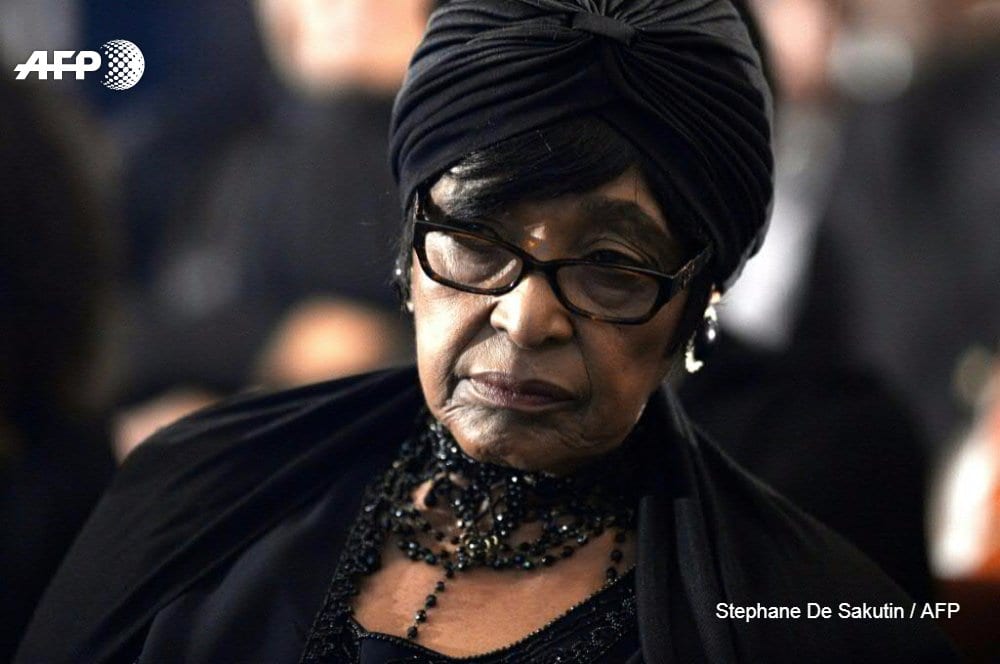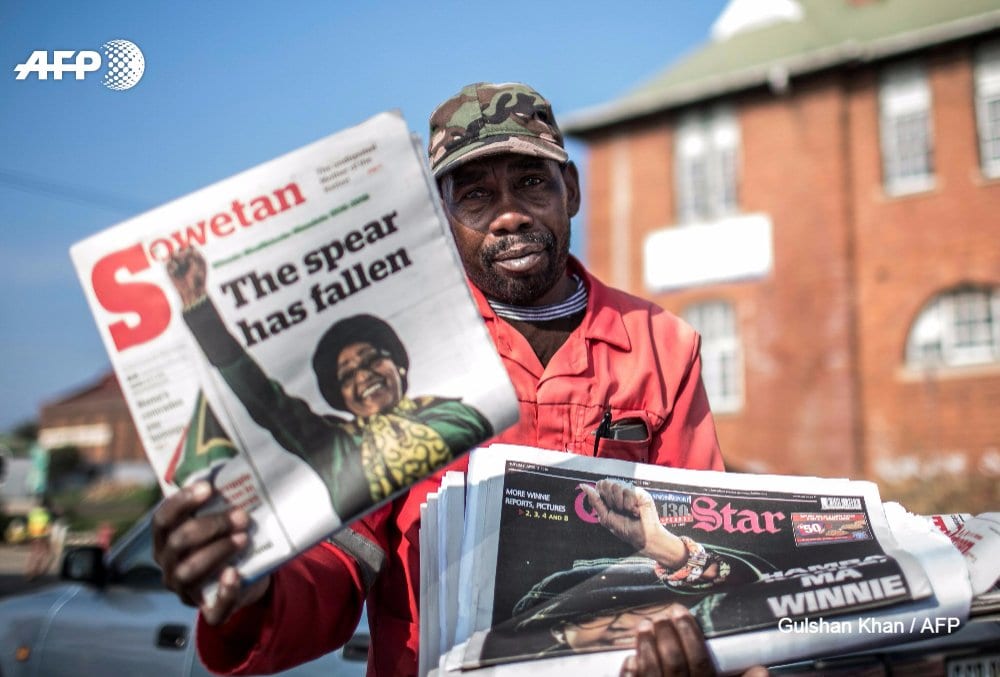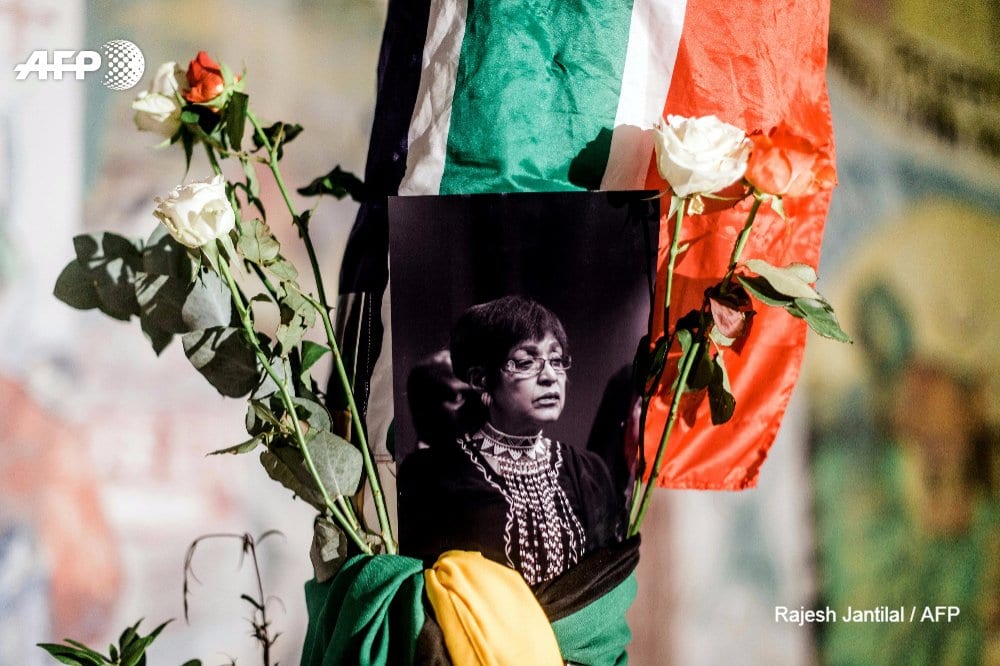South Africa on Tuesday paid heartfelt tributes to Winnie Mandela, who died aged 81, as politicians hailed her as an inspirational anti-apartheid campaigner and defended her often controversial record.
The former wife of Nelson Mandela died in a Johannesburg hospital on Monday, mourned by many who praised her as one of the most charismatic and energetic activists who fought white-minority rule.
Her convictions for kidnapping and fraud, and her reputation for overseeing brutal gang violence in black townships, were largely brushed aside by eulogies of her bravery, independence and integrity.

President Cyril Ramaphosa, who described her as “an abiding symbol of the desire of our people to be free”, confirmed that a memorial service would be held on April 11 and an official funeral on April 14.
Zweli Mkhize, a senior minister in the African National Congress (ANC) party government, said Winnie Mandela’s death marked “the end of an era” as she was a leading stalwart from the darkest days of the anti-apartheid struggle.
“We are losing the last few of those very committed freedom fighters and I think all we have to do is to always take lessons from her life,” Mkhize said outside Winnie Mandela’s house in Soweto where she lived for decades.
“When she had to face the apartheid government, she was fearless — but also among ourselves she was never shy to criticise.”

– ‘Not allow racists to insult her’ –
The outspoken leader of the radical opposition Economic Freedom Fighters (EFF) party Julius Malema, who became a confidant of Winnie Mandela in recent years, was also among mourners at her modest two-storey red brick home on Tuesday.
“Because (she) was living among her people, and never betrayed her people, they gave her the title of the ‘Mother of the nation,'” he said.
“We are here to celebrate the life of a person who has never looked down on black people and the poor masses.”
Malema attacked those who criticised her chequered past, saying that “the least we can do is defend her in death and not allow the racists to insult her”.
“They fear her even in death — that is why they continue to call her names, that is why they continue to characterise her in a manner that we do not know.”
The ANC’s Women’s League, which Winnie Mandela once led, will stage a mass march to her home on Wednesday.
The firebrand activist died peacefully in Johannesburg’s Milpark hospital on Monday, her family said, adding that she was “was one of the greatest icons of the struggle against Apartheid”.
– A marriage apart –
Most of Winnie Mandela’s 38-year marriage to Nelson was spent apart, with Nelson imprisoned for 27 years, leaving her to raise their two daughters alone and to keep alive his political dream.
Glamorous and tough, she played a high-profile role in the battle to end repressive white-minority rule.
But her reputation came under damaging scrutiny in the later years of apartheid rule.
In 1986, she was widely linked to “necklacing”, the burning alive of suspected traitors who had flaming, petrol-soaked tyres forced over their heads.
In 1990 the world watched when Nelson Mandela finally walked free from prison — hand-in-hand with Winnie.
The following year, she was convicted of kidnapping and assault over the killing of Stompie Moeketsi, a 14-year-old boy.
In 1992, the Mandelas separated, and then divorced in 1996, after a legal wrangle that revealed she had an affair with a young bodyguard.
In 2003, she was found guilty of theft and fraud over bank loans.
During her old age, she re-emerged as a respected elder who was feted as a living reminder of the late Mandela — and of the long and celebrated struggle against apartheid.
Nobel laureate archbishop Desmond Tutu described her as “a defining symbol” of the battle against oppression.
“She refused to be bowed by the imprisonment of her husband, the perpetual harassment of her family by security forces, detentions, bannings and banishment,” Tutu said.
“Her courageous defiance was deeply inspirational to me, and to generations of activists.”
AFP




